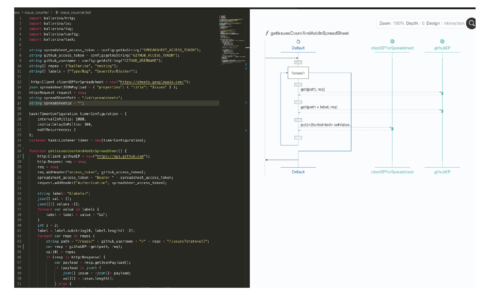
Open-source integration provider WSO2 has announced the latest release of its cloud-native, hybrid integration platform for APIs, data and event streams. WSO2 Enterprise Integrator 7.0 features a new Ballerina Integrator, an updated micro-integrator, new streaming integrator and enhanced analytics and observability capabilities.
“WSO2 Enterprise Integrator 7.0, the first platform to leverage the Ballerina language, offers a revolutionary approach to closing the integration gaps often left by traditional ESBs in supporting modern, cloud-native app development,” said Paul Fremantle, WSO2 CTO and co-founder. “Whether connecting services, events or data, developers now have the flexibility to configure or code integrations into their work; adopt agile approaches to integration; and begin to merge the worlds of development, integration, and DevOps.”
Ballerina is an open-source programming language focused on cloud-native applications. Version 1.0 of the language was recently released with new abstractions, sequence diagrams, and a statically-typed, structural type system. The new Ballerina integrator is a cloud-native framework that provides a simple-to-learn, code-driven approach to programming integrations, the company explained.
The micro-integrator has been updated and provides an integration engine for centralized ESB-style, cloud-native or microservices-style configuration-driven integration.
The new streaming integrator is designed for event-driven systems and mediating event streams.
In addition. Version 7.0 of the solution includes code-driven or graphical drag-and-drop integration as well as support for native Kubernetes.
“Using centralized integration delivery teams of specialists who build flows on an ESB is insufficient when faced with streaming analytics, hybrid cloud environments, software as a service (SaaS), agile architecture and process automation,” according to the Gartner report, Essential Skills for Modern Integration Architecture. “Cloud platforms, modern application architecture and new data processing techniques require you to create more integration flows in less time. To accomplish this, application technical professionals must learn the API, agile and cloud integration skills identified in this research.”






